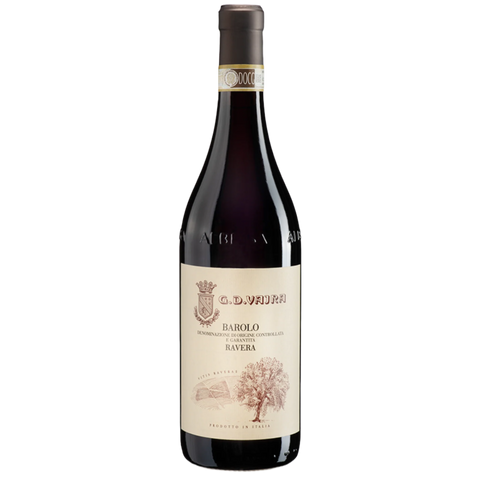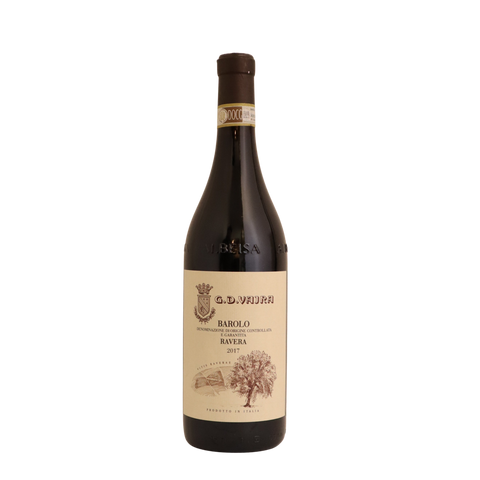

2020 G.D. Vajra "Ravera" Barolo, Piedmont, Italy
Brilliant ruby red color. The nose of the 2020 Barolo Ravera
reveals red orange peel, dried flowers, kirsch and menthol notes. The wine is profound and complex, with the signature juiciness of the site and tremendous aging potential.
There are 19 units left in stock.
ABOUT THIS WINE
2020 is a truly remarkable vintage and one of the longest of the decade. It started off with an anticipated bud break and slowed down throughout spring and summer, resulting in a late harvest. An abundant flowering, from May 12th, set the stage for perfumy, aerial and redtone dominated wines. Numerous rainfalls, well into July, resulted in a less regular fruit set, much more work in the vineyards, but also milder temperatures, leading to an estimated vegetative cycle of 213 days. Great aromatics, varietal authenticity and gorgeous tannins are the signatures of 2020.
In 2020, Ravera was harvested over two days, on October 5th and 6th. Grapes were sorted manually three times: directly on the vine, as whole clusters on the sorting tables, and lastly as single berries. Vinification was carried in vertical tini, with gentle punch down and rinsing of the cap and lasted 55 days, including a submerged cap maceration. Spontaneous malolactic fermentation occurred in the following Spring. Aging for 28 months in large Slavonian casks of 25 and 50 hectoliters. Bottled on July 11th 2023.
ABOUT THIS PRODUCER
The Vajra family has farmed Bricco delle Viole, the highest cru in Comune di Barolo, since the 1880s. At the young age of fifteen, Aldo Vajra embraced the dream to revive his family legacy. Displaying a vision and commitment belying his young age he took over the estate in 1968, turning a new page. Aldo soon acquired the first organic certification of the region (1971), created private biotype selections (selezioni massali) of Nebbiolo and Dolcetto, pioneered the renaissance of Freisa, a noble yet forgotten local grape (1980) and the cultivation of Rhine Riesling in Piemonte (1985).
Today, the family has 40 Ha under vine. The estate is steeped in tradition. Barolos are macerated for 20 to 30 days depending on the vintage. Wines are typically matured in large neutral Slavonian casks. The holdings in Bricco delle Viole are the prized vineyards of the estate, planted in 1949 by Aldo’s grandfather. It’s a very fresh terroir with open exposure and breezy conditions. Holdings in Barolo commune are: Fossati, Coste de Vergne and La Volta. Recently acquired vineyards in the commune of Sino (just outside Barolo DOCG, next to Serralunga) make a gorgeous Langhe Nebbiolo.
High elevation vineyards are a unique factor to Vajra wines, allowing them to express finesse and remarkable complexity over simple power. Attention to detail and humility toward nature, uncompromised efforts and humanity, these are the ideals of the Vajra family: Aldo and Milena, now joined by their children Giuseppe, Francesca and Isidoro, and by an amazing team of young professionals. G.D. Vajra is an independent winery, entirely family-owned.
